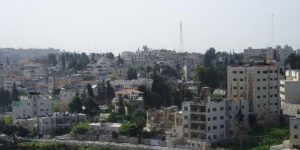
In Middle East, Ban pledges to help settle all key issues within 24 months

Secretary-General Ban Ki-moon
“Indirect talks,” Mr. Ban told reporters after meeting with Palestinian Authority Prime Minister Salam Fayyad, “are not the end result,” and there are “no other alternatives” to direct negotiations.
The Secretary-General arrived in the region from Moscow, where he attended yesterday's gathering of the diplomatic Quartet, comprising the United Nations, the European Union (EU), Russia and the United States.
The group issued a joint statement in which it called for the sides to immediately resume talks to pave the way for a settlement “that ends the occupation which began in 1967 and results in the emergence of an independent, democratic and viable Palestinian State living side by side in peace and security with Israel and its neighbours.”
Mr. Ban today called for both parties to restart talks with “sincerity and flexibility,” noting the substantial progress that had been made before talks stalled more than one year ago.
The time is ripe, he said, for the sides, with the international community's backing, to “engage in proximity talks first then move forward to direct negotiations for a final settlement of all these issues.”
With Israel's recent announcement of plans to erect 1,600 new housing units in East Jerusalem having been strongly condemned by the Quartet, “I sincerely hope that the Israeli authorities refrain from taking such unilateral actions which may undermine and prejudice the final outcome of the negotiations,” the Secretary-General said.
He appealed for a “politically conducive atmosphere” to allow negotiations to progress on a foundation of mutual understanding.
Mr. Ban, who will visit Gaza tomorrow, welcomed the Israeli Government's approval yesterday of UN humanitarian projects, including the building of housing units, a flour mill and sewage treatment facilities.
“These are first positive steps, but much more needs to be done,” he said as he saw the so-called Area C, which covers 60 per cent of the West Bank and remains largely off limits to Palestinians.
“I am deeply concerned about this worsening humanitarian situation” for the Palestinian people, he said “I will urge again the Israeli authorities to remove roadblocks, ease these crossings and permits, these are some very important issues which we will continue to work on.”
Before attending a dinner in Jerusalem this evening hosted by Israeli President Shimon Peres, Mr. Ban told reporters that he welcomes the country's commitment to the two-State solution, but underscored the need for a settlement freeze.
“I know how much Israelis yearn for lasting security,” he said. “That is my goal too. I am here to say that peace is just not necessary and urgent. It is also achievable.”
The Secretary-General today also expressed his deep distress and concern over reports of the deaths of two Palestinian teenagers in the West Bank.
In the statement issued by his spokesperson in Jerusalem, he also condemned today's rocket fire from Gaza into Israel.
“The Secretary-General strongly appeals for calm and an end to violence, particularly at this critical juncture.”
News Tracker: past stories on this issue
Quartet calls for immediate resumption of Middle East peace talks







 18 March 2009
18 March 2009
